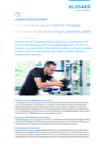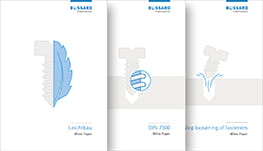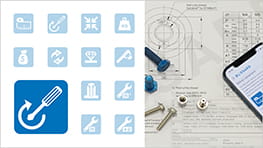Increase process reliability thanks to a detailed examination of your application. A torque analysis is used to determine reliable tightening torques and can be carried out either in one of our laboratories or at your location.
Torque analysis - Higher process reliability thanks to screw joint tests
Why is a torque analysis necessary?
Thread-forming screws are frequently used in the construction of machinery. However, since the various materials, screw types, screw-in depths, hole geometries and other parameters do not provide universal information on torques, torque analyses are indispensable for reliable screw connections. In Bossard’s application engineering department, torque analyses are part of our day-to-day business. Torques in the range of 0.1 - 1500 Nm can be measured and recorded at the bolting test stations. If required, Bossard also has accredited laboratories in each world region with corresponding testing competencies for recognized validation.
How is a torque analysis performed?
Whenever possible, torque analyses are carried out on the customer’s original components. During the test, the connections are tightened until they fail. As a result, the components are destroyed after the test and can no longer be used.
How is the data evaluated?
After the test, the recorded torque and angle of rotation curves are evaluated by our application engineers. Both the screw-in torque and overtightening torque are determined. The resulting torque and angle of rotation curves can then be used to draw meaningful conclusions about the behavior and failure of the connections.
What is the goal of a torque analysis and what are the benefits for the customer?
Several factors must coincide before a connection can be considered reliable. For example, the overtightening torque at which the connection fails must be significantly greater than the screw-in torque that is required for thread forming. Only then can the recommended tightening torque be reliably defined and you, as the customer, can be certain that the connection can be properly tightened, thereby minimizing your component’s risk of failure.
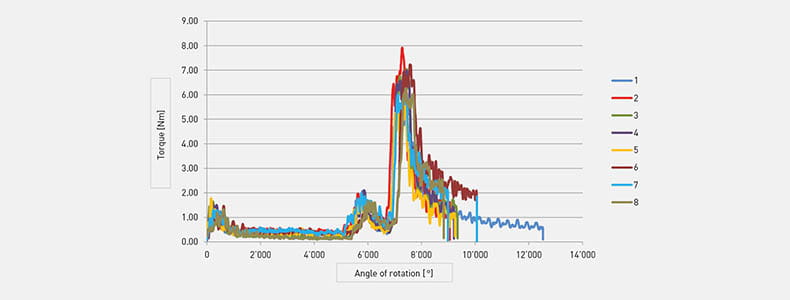
Figure 1: Technically optimal torque/angle of rotation curves.
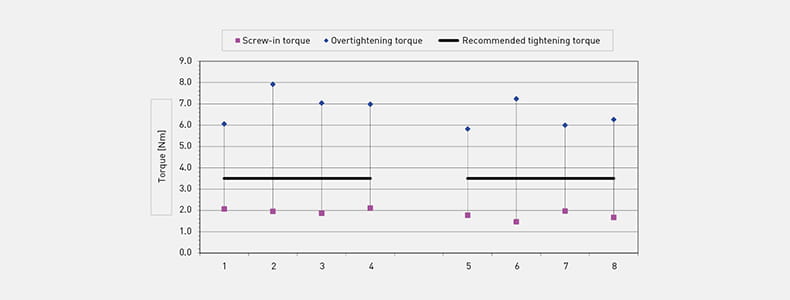
Figure 2: Evaluation with tightening torque recommendation for the customer based on 2 proposed fastening solutions.
Why is Bossard the right partner?
Our customers benefit from our highly qualified personnel and many years of experience in fastening technology. In addition, our ability to access accredited and state-of-the-art measuring and testing facilities form the basis for reliable quality assurance and product quality.
Contact our experts and learn more about Bossard's Expert Test Services. We are happy to hear from you!
Torque Analysis
Discover other modules that contribute to improving your productivity step by step
![]() Expert Education
Expert Education
Learn about the essentials and secrets of fastenings in our seminars and e-learning courses
![]() Expert Design
Expert Design
Design your best product with a wide range of technical information and tools
Expert Walk
Study your fasteners and tools in use, we determine how to proceed leaner and smarter
![]() Expert Assortment Analysis
Expert Assortment Analysis
Reduce TCO by identifying opportunities for fastener rationalization
![]() Expert Test Services
Expert Test Services
Accredited test laboratories guarantee that your manufacturing reliably meets quality requirements


